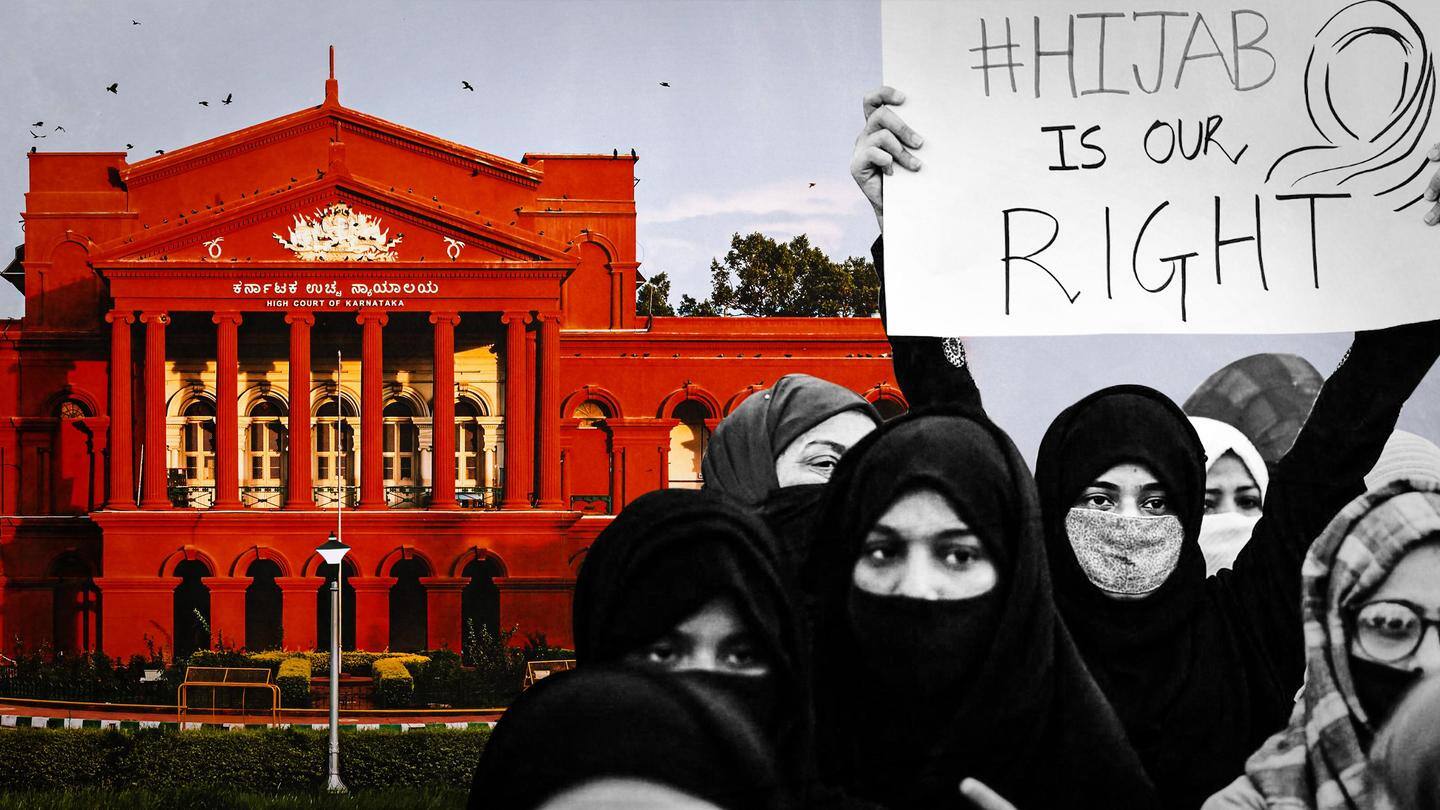
'Wearing hijab not essential practice in Islam,' rules Karnataka HC
What's the story
After days of back-to-back hearings, the Karnataka High Court on Tuesday dismissed all petitions that challenged the state government's recent ban on wearing hijab in educational institutions. This came after the state witnessed intense protests for and against the right to wear headscarves. The court had heard pleas filed by Muslim girls studying in government colleges in Karnataka against the ban on hijab.
Judgment
Here's what the court said
"Wearing of the hijab does not form essential religious practice in Islam," the judgment rendered by the court read. The HC also held that a restriction on wearing the hijab, a uniform restriction, falls under reasonable restrictions prescribed under Article 19 (2). Such a ban cannot be said to be in violation of the fundamental rights guaranteed under Articles 19 and 21, it said.
Petitioners
What did the petitioners argue?
The petitioners had argued that the hijab is part of their religious and cultural practice. They had also said they didn't refuse to wear uniforms, rather asked to be allowed to wear a headscarf of the same color as their uniform. The petitioners had also argued extensively on Article 25 and how the ban on hijab under it is not legally sustainable.
Information
Petitioners requested wearing hijab on Friday, Ramzan
During the hearing, petitioners also sought some relief to wear hijab on some special occasions. They requested the HC to pass an order allowing girls to wear Hijab on Fridays and during the holy month of Ramzan.
Origin
How did the hijab row start?
The hijab row started after six women students were barred from attending classes for wearing hijabs at a government college in Udupi on January 1, as the dress was against the prescribed norms of the college. Following the students' protest against the move, the College Development Committee President, BJP MLA Ragupathi Bhat, had said students protesting and sitting outside were 'free to leave.'
MLA
Will issue Transfer Certificate, but our policy is clear: MLA
"A Transfer Certificate (TC) will be given and they can go to any college that will allow them to do so. But, our policy is clear. No hijabs in the classroom," the MLA had said. Notably, the role of MLAs in the college development committee (CDC) was also a point of debate during the HC hearings as the petitioners challenged their administrative role.
Protests
Hijab protests spilled over
Meanwhile, protests over the issue spread to other colleges in the state. On January 3, some college students in Karnataka's Koppa district wore saffron scarves to protest against allowing Muslim girls to wear hijab inside the classroom. Similar protests were also witnessed in Mangaluru colleges on January 6. In February, students in Kundapur and Shivamogga colleges also agitated against wearing hijab in classrooms.
Development
Karnataka government formed an expert committee
On January 26, the Karnataka government set up an expert committee to resolve the hijab row. It also announced that all girls should adhere to uniform rules until the committee offers its recommendations. Separately, Udupi students filed a writ petition in the Karnataka HC, seeking a declaration that wearing hijab is a fundamental right.
Violence
Protests turned violent; Section 144 imposed
Notably, protests related to hijab row also turned violent in some places. In Shivamogga, Section 144 was imposed after incidents of stone-pelting were reported on February 8. Protests in Bagalkot also turned violent after stones were pelted and the police had to resort to lathi-charge. A video also showed students wearing saffron scarves accosting a hijab-wearing girl outside a college chanting "Jai Shree Ram."
Information
Karnataka government banned clothes that disturb integrity, public order
Amid all this, the Karnataka government ordered a ban on clothes that disturb equality, integrity, and public order in schools and colleges. The state government invoked 133 (2) of the Karnataka Education Act-1983, which says a uniform style of clothes has to be worn compulsorily.
Interim order
HC passed interim order restraining students from wearing religious attire
In wake of the protests turning violent, the Karnataka government ordered the closure of all schools and colleges in the state. However, on February 10, HC stated that colleges in Karnataka could reopen but no student would wear anything religious till the matter was pending before the court. Following the interim order, all schools and colleges in the state opened in a phased manner.